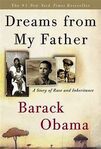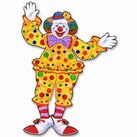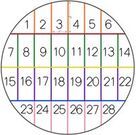
Even after taking up fiction writing as a second career, I never gave any serious thought to writing a memoir, primarily because I did not feel I have anything particularly profound or interesting to say that anyone would ever want to read (and as it turned out, I didn’t even know how to spell the word correctly).
I’ve done interesting things, and I have known interesting people, but personally, I never thought about my life as particularly extraordinary or memoir-worthy.
From my research I learned, first, that you don’t spell memoir with an “e” at the end. Second, I realized I never felt a burning need to tell my story because no one else could tell it or to create another version of my life. My bad!
Maya Angelou once wrote, “There is no greater agony than bearing an untold story inside you.” I believe that, but perhaps I was (am?) too shallow to realize the significance of what was going on around me or too busy living life to make the time to write about it, but there are no burning compulsions to drive me.

Traditionally, Memoir is a branch of literature now called “creative nonfiction”, defined by American writer and speaker Lee Gutkind as, “true stories, well told.”
Image Source: Ingramspark.com/writing-a-memoir
Although Merriam Webster defines a memoire as “a narrative composed from personal experience”, that could be a rather opened-ended rambling about anything or nothing, as long as it is personal experience. In the 21st century, the term might also apply to telling one’s story in a format other than writing, such as video, photography, song, and so on, but this discussion is limited to written memoirs.
If open-ended narrative is what you want to write, you are probably doing it already as a diary, in letters, or in some other way such as, ahem… writing blogs. If so, most of this article will not matter to you, which doesn’t mean you are not building a written record that will assist you later if you choose to write a more conventional account of your life.
So — Bye, bye! And good luck! Otherwise, memoir is a true story, well-told, about someone and something, however the author chooses to tell it.
INGREDIENTS OF MEMOIR
Masterclass.com, whose writing courses are taught by some pretty high-powered authors, indicates that memoirs do not document the author’s entire life but focus on an era or a specific multi-era segment of the journey. The memoir can also follow the author’s life “through a particular lens.” Memoirs generally contain six basic ingredients.
● Theme
Memoir writing should focus on a specific theme or lesson, and every compelling story included in a good memoir should support that theme. When people read your memoir, what do you want them to take away?
● Obstacles
If the author was alive and conscious during most of his/her life, the story will be full of obstacles to be overcome. Every good story has them because every human life has them. An author can facilitate the writing process by outlining the major obstacles that stood in the way of achieving their goals.
● Emotional beats
How can a story be good without any emotion? It can’t, and that is why memoir writing is packed with the author’s feelings and opinions.
Writing in the first person is the favorite choice of most memoir authors because it is very immediate, and easy enough to do when you are telling your own story. Owning those emotions may be the hardest part for the writer. Of course, using first person is not a requirement, but it does bring the reader right along the emotional arc with the author.
● Supporting stories
Writing memoirs involves plumbing the depths of your real-life story and presenting those key events with honesty and transparency. That’s why one of the essential elements of a memoir is gathering supporting stories from other sources.
Masterclass.com suggests that for many types of memoirs, including a coming-of-age story, it is helpful to interview your friends or family members who were around you at the time. They will remember events differently than you do. I don’t recall being an obnoxious teenager, but my family does. Besides, stories from the memories of others add variety and perspective, and you may learn something about what happened when you were “out of the room.”
● Personal style/ Voice
As with any type of writing, except perhaps technical writing, voice is key. You can tell your story in a way that no one else on earth can, with the private thoughts and emotions that went along with the experiences. That is your personal style. A memoir should make the most of your personality and your point of view.
● Honesty
This is what really happened! At least as the author remembers it. No one else remember exactly what the author does, but memoirs require the author to be brutally honest. That is one of the defining characteristics of this kind of writing.
Readers expect a memoir to be true, even though some of them forget a memoir it is what the authors remembers as true. But if you whitewash your story and try to make it something it isn’t, a reader will see through that in a New York minute. If your dress was red or green doesn’t matter (usually), and those kinds of details may be the kind you don’t remember vividly. But feelings and reactions are another matter.
If you can’t take the "heat of honesty", don’t try cook in the "memoir kitchen". Or if you do, be sure you can deal honestly the events you choose to write about.
PURPOSE
Delving into writing memoirs was enlightening, particularly in relation to purpose. While attempting to write a simple, definitive paragraph, I had an ”ah-ha!” moment when I realized that the purpose of the memoir is not the same as the purpose of writing the memoir. While the two are inexorably intertwined and overlapping, it is not difficult to see the differences.
● The Purpose Of A Memoir
Like any other good story, there need to be reasons (there is usually more than one) for telling it. The word memoir itself is derived from Old French meaning “written note; memorandum; something written to be kept in mind.” That last part of the definition strikes me as the overriding purpose of a memoir.
“To keep something in mind.” The purpose the memoir itself is to share with others what the author believes should be kept in mind. Something to learn or understand more thoroughly, and to remember.
● The Purpose of Writing a Memoir
There are numerous reasons for writing this type of creative nonfiction, but all of them are intensely personal to the author.

The most common reason people write memoirs is to preserve a family’s legacy. Most humans seem motivated to have someone to remember them after death.
Self-image, generativity (relating to reproduction), and death anxiety all play a role in driving people to do all sorts of things to build a legacy to ensure they are remembered long after they are gone. Writing memoirs, leaving family heirlooms to children, and creating a charity in their own name are a few examples of some of the more productive ways to deal with the apparently inherent need “to live forever.”

The purpose can also be a search for one’s personal and/or family identity. Growing up, we all glean something about our family identity through what we are told and what we observe. Usually, this pieced-together vision is incomplete, and it may also be painfully inaccurate.
Many people feel the drive to investigate and learn the true identities and histories of their families and their ancestors, and writing a memoir is a popular way to accomplish that.

A purpose can be an attempt to gain insight about a past personal event(s), or heal from traumatic experiences or wounds inflicted by others or by life itself.
However, the insight does not have to be personal. By going through the process of writing about one’s life experiences, one can also search for, gain and share insights about the times in which the person, or the person’s ancestors, lived.

Writer André Aciman believes some people write memoirs because they want a chance to create another version of their lives. psychologytoday.com/your-memoir
Somehow the outcome does not have the “ring” of being completely honest, but maybe some authors achieve that.

The burning agony to tell one’s story most often springs from an author who is not so much searching for personal identity and insight, but one who wants to expose to the world not only past experiences but also the reasons why these experiences happened, particularly when those reasons have been purposely hidden, not seen, or misunderstood, by those who did not experience them.
Of course, purpose and results usually vary, and while an individual may write a memoir for the purpose of exposing corruption in the X industry, the author may achieve several or all of the other purposes for writing the memoir.

The only purpose I found for not writing a memoir is revenge. Everyone writing on the subject agrees that no good comes of revenge memoirs. It would appear, however, that some authors did not get the memo and have written this form of creative nonfiction with that objective in mind.
WHO IS THE AUDIENCE?
The audience for any memoir is also interrelated to the purpose of the memoir and the purpose for writing the memoir. While it may seem that audience doesn’t matter and comes “after the fact” in the process, that’s not the case. The audience should be kept in mind while structuring the work: i.e. pay attention to how the material is put together and presented in a way that is meaningful to that audience.
Just remember, whomever the author is writing the memoir for, in reality it may be difficult or impossible to control who reads it. The same goes for whether it remains private or ends up being public. Anyone who reads a memoir has one of two motivations to do so which makes them the audiences.
● First, Audiences Interested In The Author or the Author’s Family

Sometimes there is no other intended audience than the author, who is writing it solely for cerebral purposes. Just remember, ultimately it may not turn out that way.

In this case, the content is specifically for a certain member or members of your family, but not everyone. Again, that might be hard to control once one has read it.

It may be that the information is intended for the entire family, which can also include close friends, and those with whom the author has a fairly close relationship with, such as members of the same church or professional organization. In short, this audience might not be the one you choose for revealing closely guarded family secrets, scandals, or even deeply personal beliefs or confessions.

● The General Public
In this context, I am talking about people who are interested in a particular memoir not because they are interested in author Joe Blow or Joe Blow’s family, but are interested in the time period (history, culture, the way of life, technology available, social events, social mores, and other issues related to that time) or the topic the author was involved with and wrote about.
An example could be a Chef’s memoir. The reader might not be interested at all in the cook as a person but is interested in the author’s descriptions of the dishes prepared (maybe even recipes and those originated by the author), unusual ingredients used, the cooking tools available at the time, customs regarding the serving of the dishes, and so on.
In either audience, you will find 1) those who will buy the memoir (book, e-Book, video, game, film, and whatever other format it is available for purchase); 2) those who will read it if they don’t have to buy it; and 3) those who will buy it but won’t read it.
TERMINOLOGY TURMOIL
As often occurs, different folks have different strokes. We all tend to refer to things by using general terms (such as kinds, styles, types, forms, components, elements, etc.) to describe different, similar, and sometimes the same classifications or categories.
The product is like a big round cake of one layer or many. There are a number of ways it can be cut and served.
● Autobiography vs. Memoir
One difference in terms that matters is Autobiography vs. Memoir. Both are written, non-fiction narratives about the life of the person who wrote them, but they are different in structure, scope, style, philosophy, and audience.
• Autobiography is a factual and historical account of one’s entire life, usually from beginning to end (or present), and usually in chronological order.
• Memoir is a narrative account in which the author shares their memories of specific times, events, people, or reflects on a string of themed occurrences throughout all or part of their life. Memoir is more based on the raw material of their life and memories and feelings from a personal perspective.
Beyond this, it is easy to become confused by terminology and to compare apples and oranges, which are both angiosperm fruits (flowering plants that produce seeds include in a fruit). Both fruits have numerous varieties and similarities, but somewhere along the line stop being comparable with each other. Say what?
ORGANIZATION OF CONTENT
Most writers understand the word “content” to mean what the book is about. The meaty part. In the case of memoir, it has to do with what part of the author’s life he will write about and for what reasons.
Let’s face it. No matter how exciting, interesting, unique, or motivational our lives are overall, we all live certain segments of our time doing things that no one wants to know about. This means the author has to determine what parts of his life he wants to tell and those he does not want to write about.
Even if the purpose is solely to record everyday life with all the boring chores, events, conversations, etc. that happen to that person, in that place and at that time, there needs to be a thread that holds everything together. Whatever your purpose and the purpose of your subject matter, you are not writing to bore the reader to into a coma. You are not killing yourself writing your memoire so the reader will die of boredom. You want the reader to be interested and be anxious to know what comes next.
Memoir makes visible, and weaves together, the connecting threads of life events and gives meaning to them. This form of writing pulls related events from your life and examines them, turns them around and inside out, and shapes them into a story that communicates your perspective and truth to others.
The following is an alphabetical list of approaches without giving them categories. I’m sure many of them overlap. Sorry!

This type of memoir is popular among famous people and, similar to all memoirs, can serve a number of purposes. However, such works are also written to sell to the public (and in large numbers, if possible), and immediately brake the rule of having to be written about the author by the author.
You don't need to be a, or "the", celebrity to write a celebrity memoir. You can write a portraiture memoir about someone renowned whom you are close with. Write from your perspective instead of theirs. Celebrities sell, so any incident concerning them (and you) has appeal to readers. *Memoir written to sell.

Confessional memoirs focus on what the writer feels are the wrong actions or decisions they took in life. It is a lot like someone entering a confessional booth to talk to a priest about their sins, which is how this memoir got its name. After discussing the decision or actions, the writer could then use the memoir to talk about how they made amends with those involved and how the process eventually changed their life for the better (or whatever). The name implies an upbeat ending rather than a downer.
● Novel-Like Memoir *Memoirs written to sell
This type of memoir is page-turning, evocative, and narrated like a novel. It combines tragic events with a dash of magic and an inspiring storyline. Like a novel, the writing style provokes the readers' imagination with vivid and visual descriptions. Feelings are also described in an engaging way.

The Personal Memoir always focuses on: 1) A specific experience or event; 2) Why that event may have (or did) occur; and 3) What the writer learned after the situation was resolved.
This kind of event can be a childhood or a coming-of-age occurrence, or revolve around a personal life event such as divorce, illness, abuse, grief, an adventure, living abroad, and so on. Every individual has such events (ordinary or unusual) which can become an infinite well for inspiration.
Because this type of memoir deals with primarily one event with usually major fallout, they tend to be life-altering experiences. Another way of framing this kind of memoir is a glimpse into the writer’s personal life during a certain segment of time. These memoirs are traditionally the most popular type. Finally, the theme that ties the stories together could the type of event related to extreme emotions, such as the most embarrassing moment, the most gratifying moment, the most horrific moment, etc.

These are most often written by those who have held public office, like presidents, governors, and other government officials including military. Some high-profile activists with inspiring life lessons have also written such a memoir.

This type of memoir is the only other, besides a celebrity memoir, that may be written by someone other than the actual person. It’s based on the experiences or events of a person who has documented them thoroughly in some way but, in this case, the other person does not have to be a celebrity. Nonetheless, this calls for subject who is “bigger than life” to keep the interest and sell the book. As the author, you are writing about your experiences when dealing with the subject of the memoir.
A variation of the theme could be based on someone’s diary or even correspondence with someone over a period of time, as long as it is taken from the narrative the individual wrote. I believe it would have to include a lot about how the original writer felt about things to make it work as a memoir.
The writer of a portrait memoir does not include their own thoughts or feelings – only what they have found in their research is included.

This type of memoir is written from the perspective of the writer’s professional life. If someone was a politician, for example, they might write a memoir about their time in public office. A judge might write about important or memorable cases; a clown, what it was like growing up as part of a traveling circus.
Some memoirs in this category are written for the purpose of forming a historical record of events. Others may be written as training materials for others. At the end of the day, however, this type of memoir still needs to offer a story arc and thesis to keep the reader engaged.

Some people live their lives in a very public way. Celebrities would be associated with this type of memoir, but so would anyone that lives their life in the public eye on a regular basis. The public memoir is a little different because the goal is to let readers get to know the writer in a more personal way than the public lens allows. There are more thoughts, opinions, feelings, and points of view included in this narrative without the need for a comprehensive story arc.

A memoir about searching for spiritual meaning and purpose is most often referred to as a Spiritual Quest. The author is a spiritual seeker, which may or may not discuss anything related to religion. Spirituality, after all, is the quality of being a human spirit and the experiences related to the soul and immaterial activities. Many spiritual memoirs talk about peace, love, and mindfulness, like those written by the Dalai Lama.

Oops! Maybe not this kind of transition
Transformational memoirs, one of the most common types, include:
1) coming of age memoirs; 2) overcoming addictions or challenging circumstances; and 3) embracing religion or spirituality and the changes that decision helped to create.
Significant events and experiences that helped to shape the writer are important elements in this type of memoir. A transformational memoir should also include what the writer found or learned at the end of the journey during the quest for transformation.

Some writers have had notable experiences while traveling. Others may have started traveling just so they could have those experiences.
This type of memoir focuses on the personal adventure of the situation and challenges the writer may have faced and overcome. Imagine climbing Mount Everest and dealing with the cold, wind, and low oxygen near the summit. What were the writer’s thoughts, feelings, and choices during this difficult time? That’s what makes this type of memoir stand out.
A travel or adventure memoir includes narration on experiences, activities, and lessons learned during a trip. This type of memoir mostly describes places in vivid detail and relates unforgettable experiences. To add substance, many authors include how they were forever changed by their travels.

We all love reading about heroes, survivors, and rags-to-riches. This type of memoir describes the hardships, what the author endures, and how he or she continues to fight against all the odds. The triumph comes with important life lessons, which the author shares with readers without lecturing. This type of memoir is so common that the competition in this genre is fierce.
JUST SAYIN’!
This is what a memoir is. But it is your work. As the author you can put whatever twist on the format, content, and structure that you want. Of all the types of writings there are, this is the most personal, the most you that you can get.
Take advantage of that and make your story sing. Personally, after this, I don't think I'll attempt to write one.
Sources:
https://prowritingaid.com/art/942/selecting-and-writing-a-memorable-memoir-.aspx
https://louisadeasey.com/six-styles-of-memoir-essay/
https://networlding.com/types-of-memoirs/
https://writers.com/how-to-write-a-memoir
https://medium.com/thrive-global/why-write-a-memoir-432d18fa236b
https://www.psychologytoday.com/us/blog/the-empowerment-diary/201609/why-should-you-write-your-memoir
https://www.psychalive.org/why-write-memoir/
https://www.etymonline.com/word/memoir
https://www.psychologytoday.com/us/blog/the-empowerment-diary/201609/why-should-you-write-your-memoir
https://www.masterclass.com/articles/breaking-down-the-key-elements-of-a-memoir
https://www.psychologytoday.com/identity-can-change-even-after-death#:~:text=Generally
https://sage-answer.com/what-are-the-5-elements-of-a-memoir/
https://uwc.cah.ucf.edu/wp-content/uploads/sites/9/2015/04/The_Memoir.pdf
https://etheleemiller.com/wp-content/uploads/sites/9/2013/02/5-Elements-of-Memoir.pdfhttps://www.ingramspark.com/blog/what-to-share-when-writing-a-memoir
https://www.ingramspark.com/blog/what-to-share-when-writing-a-memoir



 RSS Feed
RSS Feed